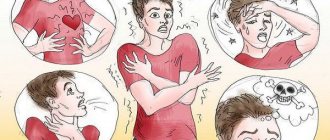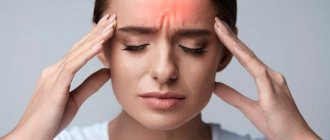Adviсe
- Symptoms of Mood Swings
- Mood swings in women. Common reasons
- Mood swings and cycles
- Mood swings. Other reasons
- Treatment of mood swings in women
- Acupressure for mood swings
The concept of mood swings is often used incorrectly. Women believe that they have swings, but in the end, they have a normal change of emotions - an adequate response to events. If a person becomes angry easily or cries frequently, this does not mean that they have mood swings. He has such a character trait.
We talk about changes if the transition from sadness to joy or vice versa happens instantly, without adequate reasons. More often the change happens in a negative direction. For such a person, changes occur along with increased anxiety and other problems.
Causes
In men, it depends mainly on fluctuations in testosterone secretion. In women, the root cause is more complex.
- Mood swings may be associated with:
- Hormonal imbalance;
- Physical condition;
- Taking certain medications, including birth control;
- Presence of diseases;
- Using alcohol or drugs;
- Stress.
They influence:
- Moon phases;
- Change of weather;
- Seasonal changes (autumn and winter when there is not enough sunlight);
- Lack of sexual relations;
- Environmental, genetic factors, or both.
Research shows that each person has their own mood level. Even with depressive disorders, it is possible to talk about a typical level of depression and restore it to normal with the help of treatment.
Treatment
Treatment of depression begins with proper diagnosis by a specialist. After determining the type of disorder, the doctor prescribes a course of therapy. The IMCAddictionByYuzapolsky clinic uses various methods and their combinations.
Drug treatment
There are many myths associated with depression medications. New generation medications prescribed by a doctor do not cause addiction, mental disorders, hormonal imbalances, and do not cause weight gain. Medicines correct the emotional state, restore the level of serotonin, dopamine and norepinephrine, and return the woman to normal life. This includes not only antidepressants, but also nootropics, and in some cases, antipsychotics. Selecting suitable medications for the treatment of depression may take some time, because... Side effects may occur. This is a completely normal practice, the main thing is to follow all the recommendations of your doctor.
Psychotherapy
Psychological causes of depression will not disappear with the help of pills. This requires the help of an experienced psychotherapist. Therapy helps to change internal attitudes that provoke depression, as well as to find internal resources for a further comfortable life.
Taking vitamins
A complex of vitamins is prescribed by a doctor. At the IMCAddictionByYuzapolsky clinic you can take a genetic test, which will show which substances are missing in your body. Of course, biomolecular supplements and vitamins are not a complete treatment, but they help maintain levels of the neurotransmitters dopamine and serotonin.
How to cope with depression on your own?
No way. Depression should be treated by specialists. Independent attempts only aggravate the development of the disease. Thus, the woman drives herself into a trap. It is especially dangerous to take antidepressants or tranquilizers on the advice of friends. Even taking vitamins is best coordinated with your doctor, so let’s talk about prescription drugs. Also, you should not take tests on the Internet that determine the presence or absence of depression. There is nothing scary or shameful about depressive disorder. This is a disease for which alcohol, talking with friends and self-hypnosis will not help. If the depressive episode ends on its own, you should still consult a doctor.
Hormones and mood
Mood changes during hormonal imbalance are associated with:
- Puberty;
- Pregnancy;
- Menopause;
- The beginning of menstruation.
During adolescence, young people experience psychological and emotional changes. Boys experience this moment in life more difficult. This is because the amount of testosterone produced can increase 18-fold within a few months. The result is hormonal shock.
For girls, this period is more gentle. The level of estrogens, female sex hormones that determine the development of secondary and tertiary female characteristics, increases only 4 times over several years.
Like boys, girls also become nervous and hypersensitive during puberty.
Mood fluctuations before menstruation are accompanied by:
- Increased excitability;
- Irritability;
- Tearfulness;
- Nervousness.
Many women during this period experience a feeling of “pity” and “compassion” for themselves. In medicine, this condition is called premenstrual dysphoric disorder. Occurs in 3 - 8 percent of women. A less severe form is called premenstrual syndrome (PMS). Affects about 30 percent of women.
Hormonal fluctuations begin in the luteal phase of the menstrual cycle, that is, approximately 7 days before the start of menstruation. Symptoms intensify two days before the onset.
Emotional disturbances during this period of the cycle are physiological and do not require treatment. For severe abdominal pain or headaches, doctors recommend using painkillers.
There are two more important periods in a woman’s life when mood swings are normal. In fact, the lack of this type of response can be cause for concern. These are pregnancy and menopause.
Menopause, which occurs after 40 years, is caused by a decrease in the level of female hormones. Estrogens influence the production of serotonin, a neurotransmitter responsible for regulating mood. This is why women during menopause experience alternating sadness, depression, joy, and euphoria.
Manic stage
The main symptom of mania is increased arousal, accompanied by an excess of energy with restlessness and hyperactivity. It is complemented by irritability.
During this period, a person’s mood reaches the stage of euphoria. Thinking becomes disordered. The patient has an endless stream of ideas, a flight of thoughts, and speech accelerates. He says a lot, but it’s difficult to grasp the essence; a new thought is born based on the word he hears, but not on its meaning.
A person develops delusions of grandeur with an overestimation of his capabilities and abilities: he grabs onto several things at once, without bringing any of them to completion. Attention is scattered: the patient is constantly distracted and finds it difficult to concentrate on a specific task.
The need for sleep sharply decreases. Maniacs lead a chaotic lifestyle, waste money, and indulge in revelry. Alcohol abuse is typical, and drug abuse is more common. Patients are aggressive, vulgar, and behave provocatively. The ability to rationally assess the situation is sharply reduced, which is why they get involved in adventurous affairs, spend money uncontrollably, get addicted to gambling, and make a lot of unnecessary purchases.
From 25 to 80% of patients in the manic phase exhibit hypersexuality. Bipolar people report that they become sexually insatiable, similar to a drug addict who requires more dosage.
The girl explains her state at the moment of mania: I am not satisfied. You have to constantly control yourself in order to resist the desires of the body. If I loosen control, I can do a lot of stupid things, which will affect my family life.
During a manic period, a person forgets about work and family. Lack of self-criticism with an exaggerated thirst for activity predisposes to obsessive behavior. The feeling of one’s omnipotence leads to the opinion that people treat the patient unfairly and underestimate him.
Individuals in the manic stage deny the inadequacy of their behavior. Along with euphoria, some maniacs develop discomfort. Irritability and anxiety come to the fore. The person feels uncomfortable.
Mania is diagnosed when the above symptoms persist for more than a week, occurring every day for most of the day. Increased irritability in combination with four additional symptoms is required.
Male, 28 years old: “Many thoughts flash at incredible speed from clarity to total eclipse. It is impossible to follow their progress. Memory fails. Everything around is annoying, angry and frightening at the same time. Control over oneself is lost, a feeling of impasse appears. Friends look in bewilderment, are afraid, shy away.”
The behavior of a patient in the manic stage can be examined using the example of the American athlete Susie Hamilton. At the age of 40, having a family, children, and being a participant in the Olympic Games, the girl suddenly goes to Las Vegas. Here the athlete provides escort services. During the day, Susie served up to four clients, indulging in sex without restrictions. She abused alcohol and took soft drugs. After the course of therapy, the woman returned home to her normal life.
Pregnancy and postpartum period
Emotional fluctuations during pregnancy are caused by dynamic and constant changes in hormonal levels.
During the period of bearing a child, all cells of a woman’s body are focused on the development of the fetus.
In addition to the hormonal aspect, mood swings during pregnancy may be associated with:
- Nausea;
- Vomiting;
- Headaches
And so on.
At this time, the woman’s body gets very tired and needs rest, walks or sleep.
Changing a pregnant woman's appearance also affects emotional control.
Mood changes in the 3rd trimester may be associated with:
- With a big belly that was still flat;
- Extra kilos;
- Skin changes (affected by progesterone);
- Hair loss.
Emotions during this period are influenced not only by hormones, but also by the woman’s personal situation. The more desirable the pregnancy, the expectant mother is cared for not only physically, but also mentally, the higher the likelihood of good health.
More than 80% of women suffer from mood swings after childbirth.
Typical symptoms:
- Problems falling asleep;
- Tearfulness;
- Anxiety;
- Feeling helpless;
- Hypochondria and doubts about one's motherhood.
A woman is constantly tormented by the thought of whether she is a good mother, whether she is coping with her responsibilities.
Doctors generally do not recommend pharmacological treatment. In most cases, this condition goes away quite quickly.
After about 2 months, the woman gains more experience in caring for her newborn baby.
It is important that after giving birth the young mother receives a lot of warmth, love and understanding from her relatives. I had time to rest.
Depressive stage
Depression manifests itself with symptoms opposite to manic symptoms. The triad of symptoms comes to the fore:
- depressed mood;
- decreased physical activity to the point of lethargy;
- slow thinking.
The patient falls into complete apathy, losing interest in everything and the ability to have fun. There is a loss of appetite, along with this - a decrease in body weight up to tens of kilos. Food loses taste. Women stop menstruating.
The patient is visited by thoughts of his uselessness. A feeling of guilt develops out of the blue. Thoughts are scattered, it is impossible to concentrate. Indecision appears.
The depressive stage develops gradually, starting with moderately pronounced symptoms. In the mild stage of depression, there is a tendency for depressive symptoms to flourish in the morning: waking up, a person feels melancholy, experiences complete apathy, and indifference to the world around him. In the evening, the mood improves slightly.
A typical sign of depression in bipolar disorder is anxiety. A bipolar person expects something unpleasant to happen for no apparent reason. It is accompanied by groundless anxiety.
Gradually, depressive symptoms increase, reaching the level of severe depression. A depressive stupor develops. The patient is motionless, frozen in one position. He is laconic, his speech is quiet, slow. Answers questions briefly or ignores them completely.
In a state of full-blown depression, the patient experiences suicidal thoughts. They are especially dangerous during the period when the patient’s motor activity is preserved, and the mood is already significantly depressed. According to statistics, 20% of people with bipolar disorder commit suicide.
Woman, 60 years old: the disease manifested itself suddenly with the causeless appearance of melancholy and apathy. Lost interest in life, abandoned farming. I lost interest in my son and husband. She considered herself inferior, worse than everyone else. She felt changes in herself, said that she was not the same as before. Increased drowsiness forced the patient to spend almost all her time in bed. I avoided any communication. She said that there was a wall behind her, separating her from the outside world.
Man, 30 years old: “I was accompanied by the confidence that my life was over, nothing good would happen. A gray, dull existence awaits ahead. It seemed that there was a black ulcer inside, constantly growing, designed to poison my existence. Finding himself in a telephone booth, he slowly slid down the wall. It seemed to me that my muscles and bones would not be able to support my body, I would remain lying in this booth to the laughter of passers-by. I don't have the strength to go to work or home. I don't trust doctors. I don’t know where I can find a specialist who could help. It seems to me that the doctors will take me for a malingerer, a healthy youngster pretending to be an unfortunate patient.”
Depression within bipolar disorder occurs in several ways. Typical is accompanied by classic symptoms with a predominance of the leading triad. Atypical depression is distinguished by the following symptoms:
- increased appetite;
- weight gain;
- drowsiness;
- psychomotor stupor;
- emotional imbalance;
- heaviness in the body;
- increased anxiety, irritability.
Many experts believe that these symptoms are an indicative sign of the depressive phase of bipolar disorder.
Depression also occurs as hypochondria, pronounced anesthesia - indifference to loved ones, friends, favorite activities, work.
Deep depression is also accompanied by delusions and hallucinations. Characterized by delusions of guilt, one's own worthlessness, groundless confidence in committing an immoral act, and economic insolvency. The delirium is endowed with a derogatory, pessimistic, self-accusatory theme. Auditory hallucinations tell the patient about his insignificance and push him to commit suicide.
Delusional depression develops like Cotard's syndrome . The syndrome combines manifestations of severe depression, depersonalization and derealization, as well as Cotard's delusion. The latter is of a hypochondriacal nature with a denial, negativistic attitude. The patient may claim that his internal organs are rotting or pass himself off as a corpse, saying that he does not need food, water, that he has an incurable disease, or that he is the greatest villain of all time.
The guy claimed that he was missing parts of his body: arms, legs, head, torso. He doesn't eat or drink or defecate. When he was asked to drink water and asked where it had gone, the guy decided that the water had evaporated.
Delusional ideas are fantastic and grandiose. The patient talks about an imminent catastrophe, that soon the entire population of the globe will disappear.
People with Cotard's syndrome experience self-disgust, insist that they only bring harm to others, and contemplate suicide.
Mental illness
Frequent mood swings may indicate mental illness. These are serious diseases that should not be underestimated. You can't cope on your own. This requires the help of a qualified psychiatrist.
The reasons for such changes may be:
- Hyperactivity syndrome;
- Depression;
- Bipolar disorder;
- Personality disorder.
Hyperactivity syndrome is characterized by:
- Hyperactivity;
- Impulsiveness;
- Frequent changes in mood.
Such people act first, then think about the consequences of their actions. They cannot control their behavior, emotions, reactions.
Depression is often understood as a temporary deterioration in mood. In fact, it is a disease that causes pathological mood swings.
Bipolar disorder (cyclophrenia) is the most severe form of depression. Doctors call this condition manic-depressive psychosis. Difficult to diagnose. Patients tend to engage in dangerous behavior.
Borderline personality disorder is characterized by frequent mood swings. The feeling of love quickly changes to hatred. Aggression, fits of anger, severe fear, and behavior that is difficult to control appear. This makes it difficult for them to establish close relationships.
Additional influence
In fact, the production of hormones is a complex process that can be disrupted by many minor factors. One of these is dehydration of the body, since with insufficient fluid intake, the distribution of substances in organs and the nervous system is disrupted. Thus, if you drink little water, you can provoke a lack of endorphins in the body, and as a result, you can get depression, sleep disturbances, decreased performance, and even the occurrence of Alzheimer’s and Parkinson’s diseases.
In other words, the mood of a man or woman largely depends on compliance with the diet. For a good mood and proper metabolism, all you need to do is drink at least 2 liters of clean water every day.
The reason for the disruption of the production of melatonin and serotonin is the presence of free radicals in the body. Nerve tissues are especially sensitive to such substances, so a lack of oxygen in the brain also quickly provokes a deterioration in mood. Prolonged stay in this state causes depression.
Causes not related to hormones
Although mood variability is common among women, it is not always related to hormones.
Some medications may cause temporary mood swings, such as hormone replacement therapy, medications for epilepsy, and others. In this case, you need to consult a doctor to adjust the treatment of the underlying disease.
People who often experience stress may feel like no one understands them, no one sympathizes with them, and everyone has turned away.
Alcohol affects the central nervous system, causing changes in mood, thinking and behavior. Immediately after consumption it causes relaxation, a feeling of euphoria, and excitement. This is due to the suppression of control mechanisms. Then comes fatigue, drowsiness, irritation and even aggression. Drugs act similarly.
Dopamine
Although serotonin actively influences our emotions, our mood is not only influenced by the weather. The hormone dopamine makes people optimists, pioneers and heroes. Its release into the body is provoked by the anticipation of receiving a reward or a certain result of one’s activity. Delight, sincere joy and the desire to experience this feeling again as soon as possible - that’s what dopamine is. It is he who determines your favorite habits, dishes, activities and places you want to go to again. The hormone also regulates the sleep cycle, memory, thinking and is released into the body in stressful situations to alleviate shock, pain or fear.
A lack of the substance in a person is manifested by chronic fatigue, obesity, decreased sexual desire and despondency. To help the body obtain the hormone in sufficient quantities, you need to eat chocolate and not neglect intimacy with your partner.
Sex really does lift your spirits.
Thyroid diseases
Thyroid disease and mood swings are an explosive mixture. A decrease or increase in thyroid hormone levels can cause sudden changes.
In addition, patients often experience:
- Chronic fatigue;
- Poor concentration;
- Decreased libido;
- Drowsiness.
Unfortunately, such changes in emotions cannot be controlled on your own. Constant monitoring by an endocrinologist and appropriate treatment are required.
Serotonin
The hormone is found in small quantities in all organs, but a large proportion of it in the body is located in the gastrointestinal tract. That is, it is the health and stable functioning of the digestive system that are largely responsible for a good mood. Of course, the mood depends not only on this. Most of the substance is still located in the brain, from where the functioning of cells throughout the body is regulated. A sufficient amount of serotonin is responsible for concentration, sexual desire, memory, performance and social behavior. What does your mood depend on on bad days? Perhaps it is the lack of the hormone in the body that provokes loss of strength, anxiety, absent-mindedness, stress and other negative emotions.
With a sufficient amount of serotonin in a person, a calm, stable reaction occurs to almost any external stimulus. Such people radiate happiness and joy, and are much less likely to get cancer, since the hormone is able to cope with the formation of “bad” cells in the body.
This substance affects appetite, sleep and feelings of pleasure.
Emotional lability
Mood lability is an anomaly of the nervous system, which is characterized by unstable mood and its sudden, causeless changes.
Can occur at any age.
A person can react acutely to both positive and negative stimuli. Some experiences are abruptly replaced by others . The background mood of such people is extremely unstable.
Causes:
- traumatic brain injuries;
- problems with the endocrine system;
- brain tumors;
- affective disorders.
Signs:
- changeable mood for no apparent reason, or for minor reasons;
- strong impressionability, suspiciousness and vulnerability;
- a person goes from one extreme to another;
- he has bad habits (alcoholism, drug addiction, gambling addiction);
- euphoria changes into depression and vice versa.
Severe emotional lability can be eliminated. You need to seek help from a specialist who will determine the causes of the disease and prescribe a course of treatment .
Psychotropic medications (antidepressants, stabilizers) may be prescribed, and a visit to a psychotherapist is mandatory.
How to get rid of Spanish shame? Advice from psychologists will help you!
Adrenalin
Energy, concentration and good mood provide a person with the right amount of adrenaline in the body. In high concentrations, the hormone causes fear and anger, so you should be careful with stimulating its production. A sufficient amount of the substance makes a person energetic, cheerful and allows you to always remain in good shape.
If you feel melancholy and despondency, you can try extreme entertainment, which will definitely help raise the level of adrenaline in your blood.










